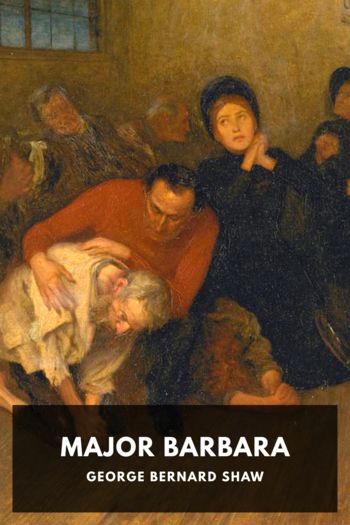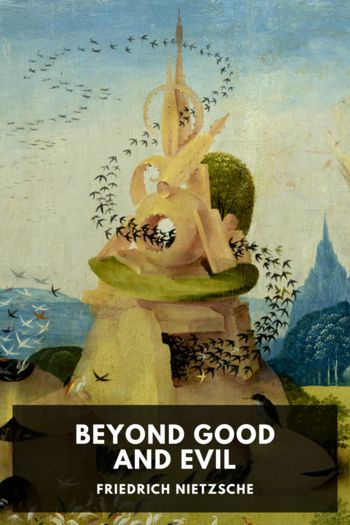Revolt of the Rats by Reed Blitzerman (feel good novels .txt) 📕

- Author: Reed Blitzerman
- Performer: -
Book online «Revolt of the Rats by Reed Blitzerman (feel good novels .txt) 📕». Author Reed Blitzerman
Then his hand closed on the lever. He opened the door and took the crank from the floorboards. His muscles proceeded though his mind was exhausted. He attached it through the grill to turn the crank and it started on the first try.
He managed to stay on the rutted dirt track during the drive to the house, all the way to the yard. Two long pulls of water from the pump out front and he struggled inside. Falling forward into the shade felt so good that he spent a moment seated on the stairs. He reached the master bed room, opened the windows for a crosswind and slept.
An hour passed. Clouds blocked the sun, and a fever dream ensnared him. He frowned in his sleep and tried to sit up in bed, but found he couldn’t rise, frozen between sleep and wakefulness.
Rabbits. He was dreaming about harmless rabbits. Two occupied the center of concentric rings, on a broad rolling field of grass surrounded by their brethren. Some were in color, others in black and white, staring to and fro at things outside of view. He remained motionless. Silent.
On closer inspection, their eyes were large and iridescent with fear. Their teeth were stitched with blood. Their fur matted and twisted where it had torn and re-healed, survivors of the hunter’s trap. Bitter stink carried downwind where it assaulted his nostrils, settling on him like fog.
The wait went on forever until they turned in unison as if he’d shouted, and all of them began to scream. It was a high pitched keening as if they’d been pierced. It carried to the roots of his teeth, traveled up his jawbone to vibrate his head. Their screams continued and they turned as a wave and attacked. Feral eyes now followed him cloaked in hate. Their long teeth fully exposed, black with coagulated blood, their burrowing legs hooked into claws shredding the flesh from his bones.
Eli came awake then, extracting himself forcefully from sleep, darkness retreating before the burning light of day. The inside of his mouth was blistered, his head was a gourd, ladled with fire. With wavering hands he sketched what he’d seen, his sweat already smearing the drawing.
Then the sun slipped out from behind the clouds, burning away inspiration. He stood, poured enough water in the basin to cover the bottom. It was calming cool on his splayed hands. He splashed it over his face and arms, anxious to be rid of the cloying musk of wild rabbits.
THEY SHOULD HAVE RETURNED by now. Eli padded down the stairs and out the front door with the folded sketch in his pocket, realizing that he was listening for a sound but heard nothing.
And now Eli had this new thing. Rabbits. What did that have to do with anything? He lived by faith. But making decisions based on dreams seemed unreal. It felt like a lie. He wondered where he’d be stranded when he ran out of whatever was powering this.
He strode past their rabbit cages in distaste, giving them a wide berth and continued on his way to the barn, overcome as he went with a chill. His most recent dream, becoming a feast for rabbits, had felt like a threat. The aura had been cold and sharp. A bitter root remained in his mouth. A scent like burnt gasoline clung to his nostrils. Even fully awake, his hands probed absently for injuries. It was as if something had grabbed him from the other side of wakefulness, trying to pull him under. He decided to tell no one about what he'd seen. Whatever it was, it felt bad.
The team wasn’t back yet. The generator had eliminated the need for Judith to hand wash clothes. It also gave them enough power to feed the machine shop. What had started as small as a mustard seed had bloomed into a second home.
Without another form of power, it was the only way to keep the lights on. It had made more sense to Dill than building a windmill or convincing the power company to bring juice to the pole. He avoided the argument.
Several notebooks full of sketches were laid out from the previous day’s production. Eli smiled to himself with pride in his family team. After years of tinkering, they'd figured out how to make machine tools with the help of a small man in a brown suit.
His family rode in on the tractor, nodding smiles and sunburn. He strode inside the barn to join them. His physical power had faded, but his endurance continued. This was work he could do. The harvest wasn't in yet, but it was time now for their other business.
They set to work. Music played from a shell-shaped radio mounted on a shelf. Everett manned the horizontal mill. Eli thought he looked bored but would never complain. He was turning into a skilled machinist.
Dill stooped at a work bench, oblivious to the world. Her lips were moving silently as her fingers traced text across the page of a thick manual.
Eli was the only one idle in the evenings. The family had voted unanimously to make him team salesman. Damn them. He had no sales calls scheduled today. Speaking to people he didn't know still made him uncomfortable.
Judith had embraced the idea. His wife, ever thrifty, had bought him a second-hand blue suit. She sat now at a hand me down wooden desk, a ledger in her left hand and a pen in her right. She was either tallying their invoices or checking his count of sales calls.
She cracked the whip. Kept him on the road sleeping in his Model T Ford all last week except the Sabbath. The commitment was paying off, though. The crop loan would be put to bed in a few months when the harvest was done. Everything else still hung over their heads.
The tenor of the radio changed. It resolved itself into words, an announcement. As he’d learned a decade before, those finely tuned ears parsed the mosquito buzz. He signaled for Everett to turn off the mill.
PRESIDENT FRANKLIN Delano Roosevelt spoke for fifteen minutes. Eli visualized his polished wood desk planted just inside the barn doors.
“Until four-thirty this morning I had hoped against hope that some miracle would prevent a devastating war in Europe and bring to an end the invasions of Poland by Germany...the influence of America should be consistent in seeking for humanity a final peace....when peace has been broken anywhere, the peace of all countries everywhere is in danger...there is being prepared a proclamation of American neutrality....”
It went on. The delivery was reasonable, soothing even. The way he would lay out an argument with Everett or Dill, hotheads both. But neutrality required little argument.
Time stretched and distorted. He felt the scratch of his old wool uniforms, and the breathless power of running in boots. His heart accelerated then gave pause. After the pox, the Army wouldn’t come for him again. They would come for his boy.
Eli shivered despite the remnants of his fever. The connection to his dream seemed undeniable. as if the rabbits had stalked up the rows of corn and massed in the shadows beneath the eaves. Those fearful eyes returned, trailing the smell of stinking fur.
No one spoke at dinner. The sun burned down. It illuminated the table and the faces of the people who were his world with a fierce orange glow. His son was old enough to enlist. He glanced sideways at Dill. She wasn’t that little girl anymore. She could tear down and rebuild an aircraft engine on her own. In a time of war, the factories would want her.
A sense of loss expanded beyond his body and overflowed the room. His son and niece were seated beside him, and at the same time, they were already gone. Is this how we grow old, fearing for the lives of our children? He squeezed Judith’s hand under the table. Her eyes were filled with silent tears. Everett and Dill went to sleep while Eli and Judith sat on the porch holding hands. Sleep evaded them driven out by a future that was suddenly ominous.
In the morning, Eli went to town for breakfast with Carter. Over coffee in the cafe adjoining the bank, they discussed the news in hushed tones.
Eli started. “So you heard the address.”
“Yes, we did. I never wore the uniform. A punctured ear drum and flat feet guaranteed me a quiet life in banking. But my best friend in college was the peak of fitness. Introduced me to my first girlfriend and encouraged my skill with numbers.”
“He sounded like a good man.”
“He was. He came to see me before he left on deployment. It was a firm handshake and then a bus to basic training. He perished within six months someplace in Europe. They never found the body. I thought the rhythms of banking would make it easier to forget. But it just isn’t so. He didn’t deserve that.”
A crush of people clamored in the background. At the counter where they sat, the sound couldn’t touch them.
Carter continued. “If I knew danger was coming, I’d be prepared for the worst.”
Carter’s words traveled like ripples on a body of water, carrying up the inlets of brackish water where Eli pushed his fears. The rabbits and all they represented were there, probing at the coastline, searching for an escape. The result squirmed free of the muck and arrived full of teeth. He needed to talk to Judith.
Eli was back to the farm when it was still morning. He maneuvered the car to where the rest of his family were harvesting corn. His shirtsleeves stayed down to avoid sunburn and he donned the straw hat off the passenger seat.
Maybe his son would let him drive the tractor for awhile. Having his arms and legs engaged helped him think, his mind floating somewhere above. Plowing through the orderly rows always gave him a sublime pleasure. He needed that feeling right now.
JUDITH WAS A THIRD generation farmer, a profession that could be explained with numbers. Not so with her husband. The intuitive way he made decisions often left her faint, or angry. Clearing the dishes, she wondered again how they’d made a pair.
Eli joined her and they stepped outside on the porch. They sat hip to hip swinging with the breeze, relieved by the night air and the privacy of darkness. Dill and Everett were in the barn. Eli shared his conversation with Carter and she to the end. There was more, she knew. After all these years of marriage, in this at least he was consistent. She turned so she could look him in the eye. “What is it you have in mind?”
He told her. And it took all her will not to get up and go inside. He wanted to go on. She could see him searching in the dark for the words.
“I have a feeling...” he started.
Her shoulders tensed and maybe something tightened in her face, squeezing out words that she used to hold back. “You’d better





Comments (0)